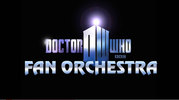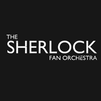|
I just finished off a bunch of songs that have sitting around unfinished the past year. Mainly, because of the polar vortex preventing me from going, well, anywhere. Secondly, because I have an discomforting amount of spare time which I should probably use more wisely. (As in: not playing with the latest IPad/Iphone game/social networky thing.)
One of the questions most asked of anyone who has ever written a song is how you get the lyrics written. In my case, musically, I usually have a good idea about how the song will go. Usually, I have at least chorus melody and chords to most of the song. Sometimes, I even have a full demo without any words and the barest sketch of a melody. I try to vary the way I write a song because that way, if I get stuck in writing it, I'll have a fairly robust set of tools to get me out of a jam. One of the tools in my tool kit is a song title and phrase list. This is a list I used to keep in my lyric notebooks. Over the years, I eventually moved it to my computer. Now, I keep it on my mobile devices using a database program and a note taking program called Evernote. Basically, its a list of titles, interesting phrases, band names, brand names or what ever combination of random words a person says that catch me. For example, in my song "Shining Your Light" off my CD "Club Bordeaux" I used the phrase "feel like a liar in my search for the truth" to start writing the lyrics of the verse. That random phrase was in the list. The actual chorus and title "Shining Your Light" was somewhere else on the list. In the end, the "feel like a liar" line ended up more in the middle of the song. Funny sidenote: the original title of the song, which started out as an instrumental, was "Backdoor to Heaven". THAT would have been some interesting NSFW lyrics. There are some commercially available tools that work in a similar to this. A fairly expensive program named Master Writer does this a little bit. But, I kind of like working on my own master list of phrases that have either a physical or emotional echo for me. It just makes it easier to write. For example, I recently wrote a song called "Breathe the Life" that has the phrase "over sea and stone". For anybody that has read children's fiction from the 1970's it is semi-recognizable from a Susan Cooper book title "Over Sea and Under Stone".from the "Dark is Rising" series. I just liked the phrase and it has emotional ties to my childhood. So, when I sing the song, It's easy to get in an emotional space to sing it. I've even gotten my kids into the act. The new album title "Ghost Museum" and the song title "Hurt Your Heart(Break Your Feelings)" comes from them. Those little rugrats are actually good for something! Since I literally have hundreds of these phrases now I, being a tech geek, decided to create a database. It's what tech geeks do. I have tags to each phrase based on what style of song I think they might be suited to(ballad, country, rock, jazz), meter, rhythm and number of syllables in a main phrase. Sometimes, I even sketch out a plot or direction based on the phrase and put it in the database in case I use it. This way, I almost never get stuck on a phrase or direction of a song for long.
1 Comment
British television shows Doctor Who and Sherlock have a rabid fan following. But, they also have really good music soundtracks, too. Put them both together, add a little social media and through the wonder of the internet you get fan orchestras. Fan orchestras are groups of fans(I guess that part is obvious) who play the soundtrack music from their favorite television programs together on the internet. Both Doctor Who and Sherlock have their own respective orchestra. The Sherlock Fan Orchestra boasts over 500 members, the Doctor Who Fan Orchestra(DWFO) has grown a similar amount. Stephen Willis (founder and co-ordinator of the DWFO) started the orchestra while working on an arrangement of "I Am the Doctor" by Murray Gold on (composition software) Sibelius. He thought it was too bad no one would ever play his arrangement. But then he was vaguely reminded of a YouTube orchestra starting up. First the organizers pick a specific piece from the show and transcribe(write down what music they hear) and arrange it. Then they e-mail the parts out to the orchestra members along with a click tracked version of the piece(so that members are able to keep time with the music). Using a good microphone and a pair of headphones, the orchestra members then video record themselves playing their parts. The parts are then sent back to the organizers who combine and balance the video recordings into a virtual orchestra. Here are two examples:
I can find no word on what composers Murray Gold(Doctor Who), Micheal Price and David Arnold(Sherlock) think about the groups. But, since both shows seem to appreciate the creativeness of their fandom, the reaction is positive from the show's current creative teams. In fact, during a during a recent Sherlock panel, the fan orchestra was briefly lauded. Virtual music groups are becoming more common because of the prevalence of the internet. Composer/conductor Eric Whitacre gave a live virtual performance of a work he had written at a TED Talk just last year. But, these two are the first instances of fans of specific television shows getting together as an orchestra.
Do other television programs have their own orchestra? Not that I can find. But, since these groups have established a method to do what they do, I expect Star Trek, Star Wars and (video game)Zelda fans to attempt something like this soon, if they haven't already. I'm signing up for both orchestras if time permits, just because I think the idea is nifty. Both groups have Facebook pages: https://www.facebook.com/DoctorWhoFanOrchestra https://www.facebook.com/sherlockfanorchestra  I’m playing at the Indy Grand Casino today. So, for four hours, I will hear a constant drone of C major in my ears. Why? Because, it seems, all the slot machines today are tuned to the key of C. Now, I assume that casinos are sound designed to keep their investors(suckers) investing and popping credits into machines. But, I haven’t read that much on the psychoacoustics of the C chord, so I’m not really sure. It could be that that’s the easiest industry standard chord to pick. Imagine the cacophony of each machine manufacturer picking tones completely dissonant to the machine next to it. Also, keep in mind that there was a transition to the modern machine, so maybe it’s just a legacy sound so that it didn’t sound completely different from other machines.(Here’s a webpage that mentions that.) Music theory-wise, most of the machines play a 5th(C G) or octave (C C) and only when there is a payout do you hear the third(E) creep in. So, maybe, the third of the C chord or “E” is the most heavenly note in the western tonal system? Certainly, most guitar players would agree with that. It could be that a major tonality in any key is just soothing, which there certainly is enough proof of. I’ve often thought that on gigs that are more tip-dependent that I should play only major, happy tunes. But, then I realized, the result of this would be my unavoidable suicide or possibly the murder of an innocent bystander. WIRED.COM has a blurb here on the design of the modern slot machine, noting that the machine is tuned to “C”. I don't know how many machines this casino has, but it's a lot of them. I’ll be playing in the middle of one for four hours. Maybe, I’ll try playing songs in dissonant keys like F#, B, or D# major. Security will probably want to have a word with me. Welcome to the new website. It's been a long time coming. Well, actually, more of a short time, since I just thought I'd redo it on a whim last Thursday. For those of you in the internet blogging world, it's based in Weebly. I did brief experiments with other website providers and this seemed to be the cheapest and provided most of the things I thought I would use(music player, video player, etc.). Also, it's designed for people who hate coding.
Yes, I do still code. But, I hate it and to be honest, I was never really good at it. Plus, there are better things to do with my time like practicing, writing music and catching up on all those nifty television series that are on cable. So, although I had to fight the temptation to fool around with the CSS to make my Google based calendar match the color of the website, I constructed this without any hands on coding. I'll probably tweak it when I get irritated by something. What really sold me on the whole new website thing was viewing some friend's websites from my Iphone. Apparently, about 20% of people accessing websites today are doing it by mobile phone. Weebly had a pretty cool way of handling that. So, if your viewing this website from your phone, you can actually see and access the content fairly easily. If you ever saw my old website, you know that it was tough to look at through a normal browser. It was impossible to view with a smart phone. I'll torch the old site later this week. I've started fairly sparse, I didn't want any huge photo or video pages. I'm of the opinion people really only look at your site to see where/when your playing and to play(and hopefully buy) your music. So, if there is anything you want me to add or think I should change to make it easier and interesting to access, let me know. |
AuthorJeff DeHerdt likes hitting black and white levers to see what kinds of interesting sounds they may, or may not, make. Archives
March 2014
Categories |


 RSS Feed
RSS Feed